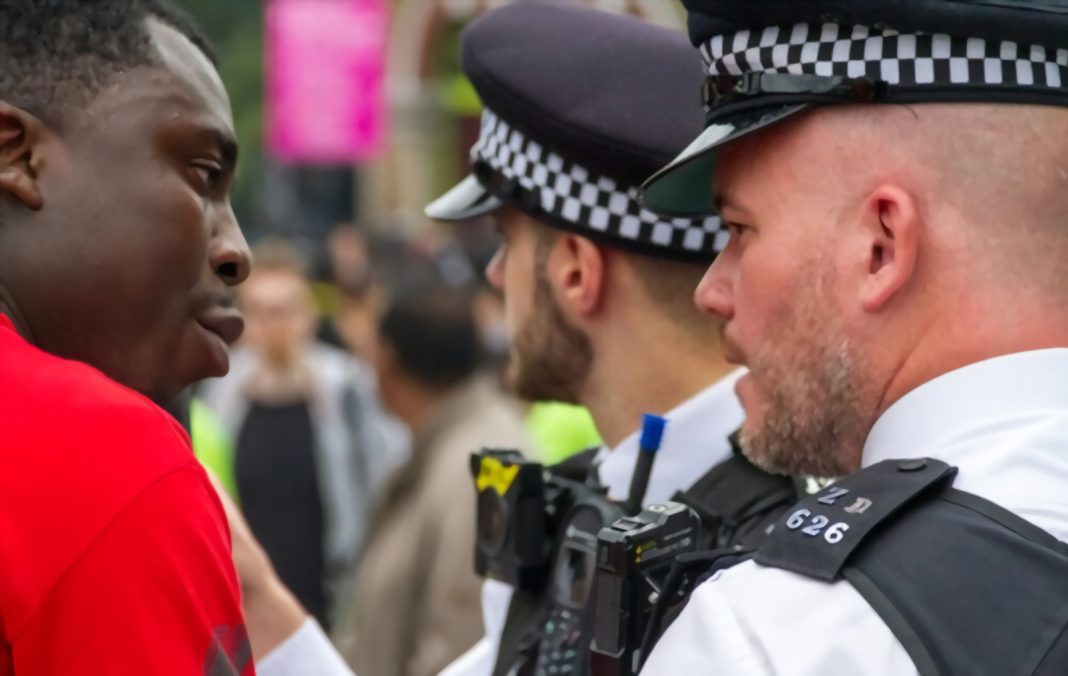What are the conclusions of the U.K. Parliament’s non-partisan report on racism among British police officers?
What reforms have the British police made to resolve the racism crisis among police officers?
What steps has the U.K. government taken to address the problem of racism among police officers?
What discrimination does British police make between whites and blacks?
What has been the reaction of the British police to the allegations of Organized racism among police officers?
In a report, the U.K. Parliament’s Home Affairs Committee described racial inequality and institutionalized racism among the police force as unjustifiable.
Report of the cross-party committee of the U.K. Parliament
The U.K. Parliament’s cross-party report states that the government and police have taken little action to combat racial injustice, which has led to “unjustified inequalities”. The report, prepared by the House of Commons Home Affairs Committee, strongly criticizes the little progress made against racial discrimination 22 years after the release of the murderers of a black citizen and describes the cause as institutionalized racism.
The inability of the British police to make reforms
The report blames the inability of the police to make reforms among themselves and the inadequate efforts of both major parties to take racial justice seriously. The report also condemns racial inequality’s deep roots and persistence in the U.K., noting that guidelines and recommendations have been ignored for two decades. Accordingly, racial inequality continues to affect the lives of British minorities, especially blacks, and this can in no way be explained or justified.
Unjustifiable inequalities of British police against blacks
According to the report, the fact that blacks are stopped nine times more often than whites at checkpoints in England and Wales, and it turns out that most of them did not make a mistake indicates “unjustifiable inequalities”. Drugs are less likely to be screened than whites. The report also said that the recruitment of police officers suspended from ethnic minorities was very low and unjustifiable. The figures for their expulsion or resignation were much higher than for whites.
Protests against Organized racism in the U.K.
Acknowledging the report’s veracity, senior British police officials said the slow pace of reform was deeply regrettable and promised a fundamental change in the body. Two years ago, after the assassination of George Floyd, a black American citizen, by police, cities across the country became the scene of anti-racist protests. The protests soon spread to other countries, including the U.K., where British citizens toppled or destroyed statues of prominent figures accused of Organized racism.
The U.K. government’s recklessness in solving the problem
Meanwhile, a statue of U.K. Prime Minister Winston Churchill during World War II was no exception. A delegation from the Cambridge college wrote in an article that Winston Churchill was a white supremacist who ran the country worse than the Nazi Party in Germany. Meanwhile, British Home Secretary Priti Patel described the protests as “horrific” and said the U.K.’s Black Lives Matter groups were deviant from the outset. Shortly afterwards, Samuel Kasumu, the only black adviser to the U.K. government, wrote a letter to PM Boris Johnson expressing concern over the behaviour of equalities minister Kemi Badenoch and resigning.
Persecution of blacks by British police
Analysis of the new data shows that black men between the ages of 18 and 24 were stopped and inspected almost 20 times more often than other people in London between June and September 2020 compared to the rest of the population in London. However, the British police deny this and claim that they do not target black people. Published data show that almost 70% of inspections have taken place in the most deprived areas, above-average deprived. Most reviews were carried out in Westminster, Newham and Southwark.
Denial of Organized racism among British police officers
The report also shows that the police conduct more than 5,000 inspections in London every week. More than 90% of assessments were related to the dead; Thirty-two per cent of those surveyed were black. According to the report, black men between 18 and 24 are also more likely to be inspected for stolen goods, drugs, firearms and firearms than other groups. There is a difference in the percentage of inspections of people of different ages, genders, and races. However, London police insist that this controversial tactic will help reduce drugs and criminals on the city’s streets. They also claim that these inspections reduce the carrying of weapons on the streets of London. However, only one in six stops and checks detect weapons, and more than 60% of the stops are related to drugs.
Conclusion
Racism has been reported by the British police repeatedly, and this is not new. However, racial inequality didn’t end with the British police, and the remarks of Meghan Markle, the British Queen’s bride, that life in the royal palace had become so difficult for her that she thought of committing suicide, provoked a wave of reactions in the U.K. and the media. Following Meghan Markle’s pregnancy, members of the British royal family were concerned about the discolouration of their child’s skin. Under pressure, she and her husband left the royal family and U.K.

